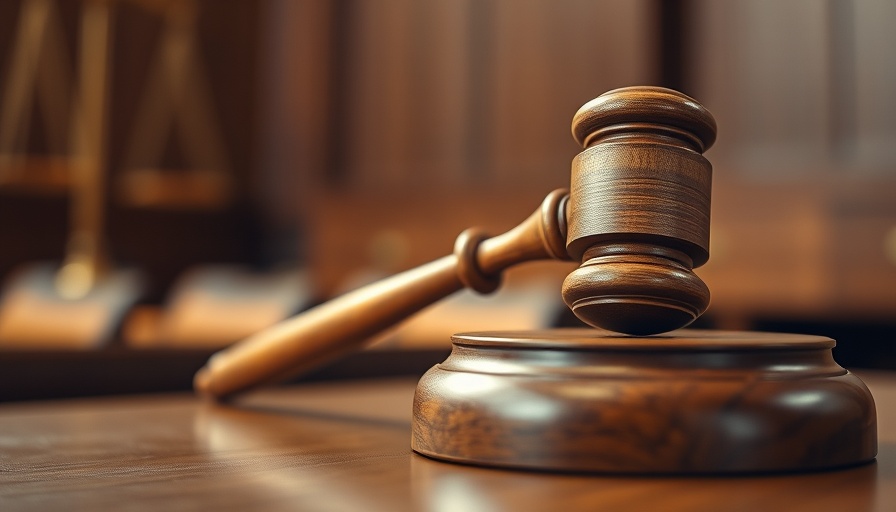
Understanding the Case: Uber and Teen Trafficking Allegations
In a troubling lawsuit, Uber is facing serious allegations after a mother from Butts County claimed that the rideshare service was directly involved in the trafficking of her 14-year-old daughter. This incident, which occurred at a deserted gas station in the early hours of the morning, highlights not just the potential dangers of unregulated rideshare services, but also the pressing issue of human trafficking that continues to plague our communities.
Unraveling the Details: A Disturbing Journey
The lawsuit reveals that the young girl was lured by Thomas Bonner, a man she had been communicating with online. He convinced her to leave her home and meet him at the gas station—a decision that would lead her down a horrifying path. An Uber driver picked her up from this isolated location and transported her to Bonner's residence, where she was later found by police after several days of abuse. The shocking nature of this incident raises essential questions about the safety measures and protocols in place for rideshare companies like Uber.
Legal Ramifications: Holding Uber Accountable
Filed in Gwinnett County State Court, the lawsuit seeks to hold Uber liable for allowing the transport of a minor without parental consent, a grave lapse in duty considering the circumstances. Attorney Michael Neff, representing the mother, hopes that this case will gain the attention of state lawmakers as they deliberate House Bill 339, a bill proposing to shield rideshare companies from legal responsibility in similar cases. Neff's urgency in filing the suit underscores the potential threats posed by this legislation.
The Broader Implications: Human Trafficking and Rideshare Services
While Uber has stated its commitment to combating human trafficking, critics argue that the measures currently in place are insufficient. Incidents like this one are not isolated, as Uber has faced similar lawsuits across the nation, highlighting vulnerabilities in the rideshare model that can easily be exploited by traffickers. The case against Bonner, who awaits trial on several severe charges, adds a disturbing layer to this ongoing issue.
Community Concerns: The Role of Rideshare Companies
Human trafficking remains a significant public concern, particularly in urban areas where rideshare services are prevalent. Advocacy groups urge companies like Uber to enhance their driver training programs and implement stricter screening processes to better protect vulnerable individuals, especially minors. The current legal framework, which may enable rideshare companies to evade accountability, could hinder progress in grassroots efforts aimed at eradicating human trafficking.
Moving Forward: Solutions and Recommendations
With human trafficking on the rise, community leaders and legislators must work together to ensure the safety of young people. It is critical for rideshare companies to collaborate with law enforcement, child protection organizations, and community leaders to devise actionable strategies against trafficking. Enhanced driver education, better vetting of passengers, and immediate reporting protocols for suspicious activities can contribute to a safer environment for all users.
Final Thoughts: Understanding Our Role in Combating Trafficking
The recent lawsuit against Uber has shed light on the vulnerabilities within the rideshare industry and the urgent need for reform. This case is a call to action for individuals to become more aware and proactive about human trafficking in their communities. Citizens, lawmakers, and service providers must unite to ensure that no one falls victim to such heinous crimes.
As this legal battle unfolds, let us reflect on our responsibility to protect the most vulnerable among us and advocate for changes that eliminate these tragic situations from becoming realities in our neighborhoods.
 Add Row
Add Row  Add
Add 



 Add Row
Add Row  Add
Add 
Write A Comment